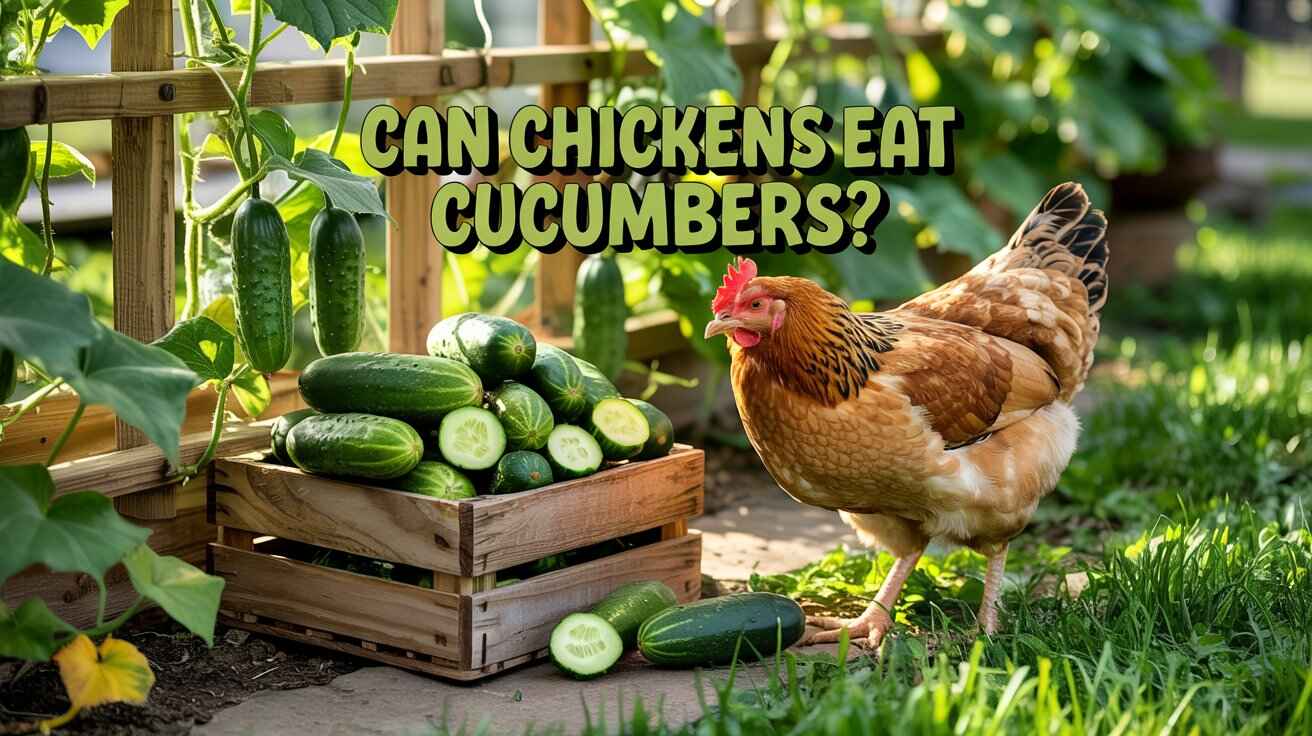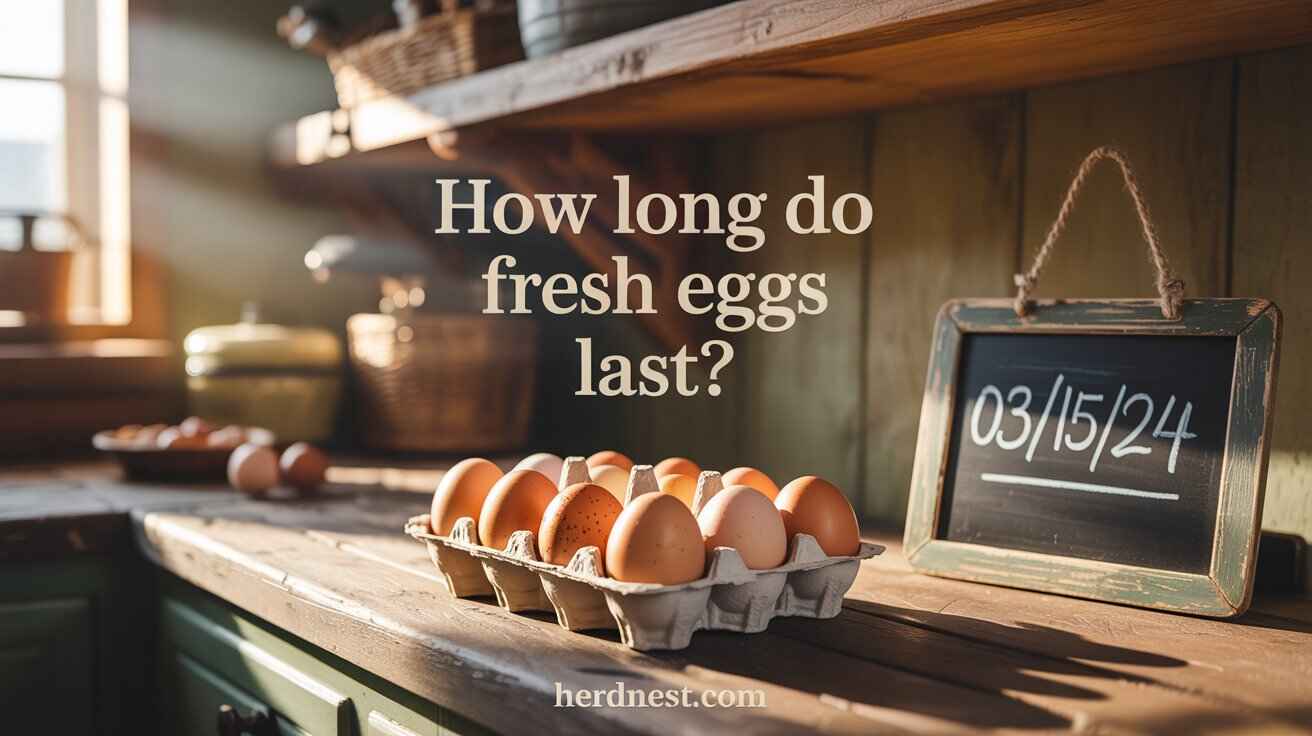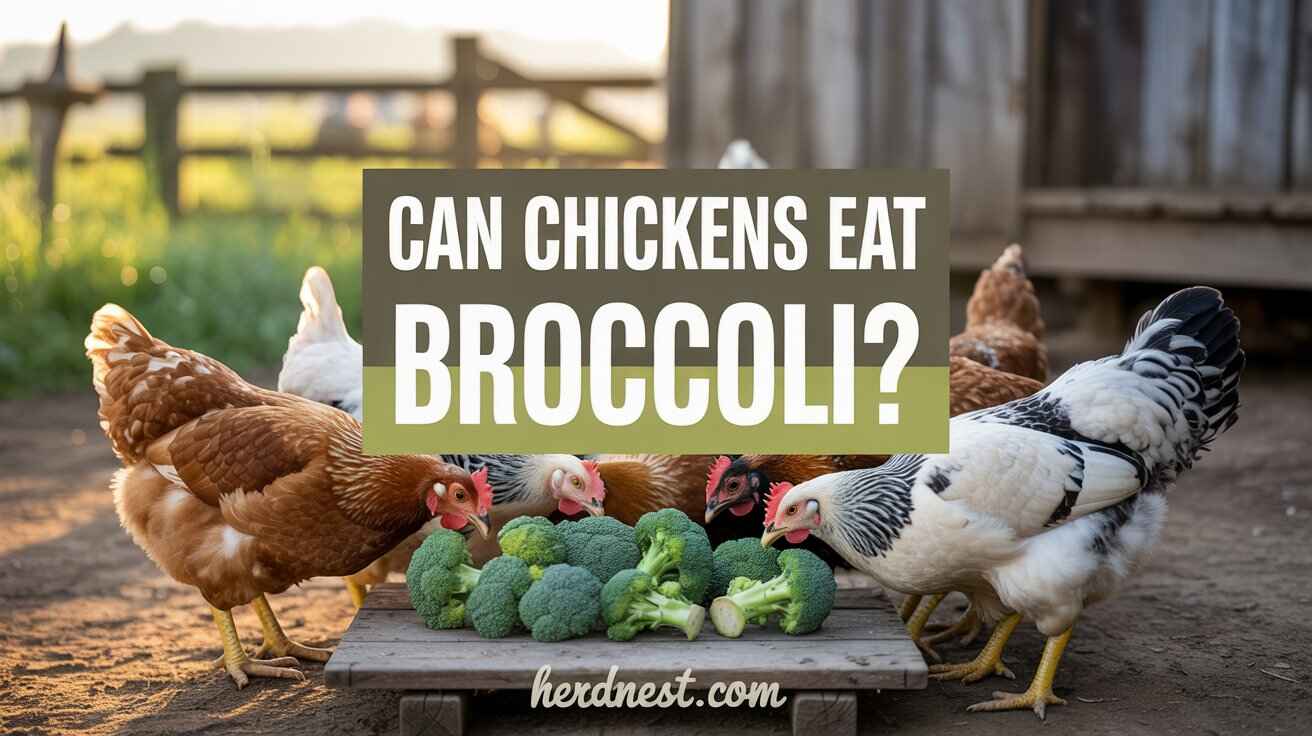Chickens enjoy a variety of treats, but cucumbers are an ideal snack for keeping them hydrated and cool during the hot summer months. Packed with nutrient-rich elements like vitamin C, vitamin A, vitamin K, potassium, magnesium, and manganese, cucumbers serve as a healthy food source for your backyard flock.
The water-filled nature of this fruit helps prevent overheating and dehydration, especially during common heatwaves that can negatively impact egg production. Whether you’re feeding cucumber peels, seeds, or the entire fruit, chickens will find every part enjoyable and beneficial.
In addition to keeping their bodies running efficiently, cucumbers provide fiber for better digestion and support strong bones with their mineral-rich content. This treat can also boost their immune systems, improve vision, and help maintain healthy reproductive rates.
While cucumbers are an excellent addition to their diet, it’s important to feed them only occasionally as a treat, alongside their regular feed, to ensure they survive on a balanced diet. When served properly, cucumbers can become a refreshing way to keep your chickens happy and healthy.
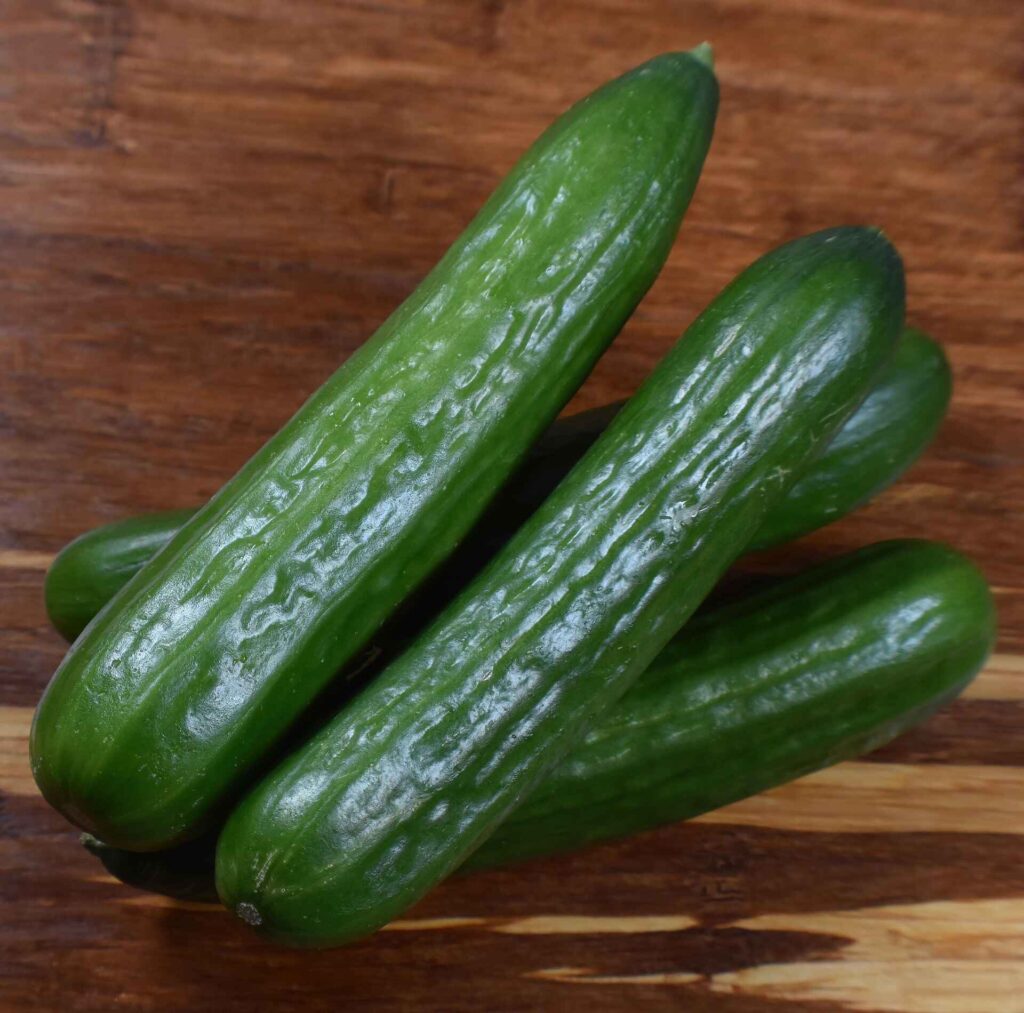
Table of Contents
ToggleCan Chickens Eat Cucumber?
Chickens can safely eat cucumbers, including the flesh, peels, seeds, and even leaves, making them a refreshing and nutritious treat—especially in hot weather due to their high water content. Rich in vitamins A, C, and K, along with minerals like potassium and magnesium, cucumbers support hydration, digestion, immunity, and bone health. While cucumbers are safe, they should be fed in moderation as occasional treats, not as a replacement for a balanced feed. Always wash them thoroughly to remove pesticides and avoid spoiled or moldy pieces to keep your flock healthy and thriving.
Nutritional Value of Cucumbers for Chickens
Cucumbers are a great treat for chickens, packed with fiber, water, and important micronutrients. They are low in calories and carbs, making them a healthy food option for your flock.
Just one-third of a single cucumber (about 100g) provides 15 calories and 3,5% of the daily recommended value of vitamin A, which helps with fertility, growth, and vision in dim light or shady conditions.
Vitamin C acts as an antioxidant and supports tissue growth, blood vessels, and the immune system, while vitamin B6 aids in the metabolism of the nervous system.
Chickens also benefit from vitamin E, vitamin K, and essential minerals like calcium, which strengthen their bones, and other nutrients that ensure the proper functioning of their heart, muscles, and brain.
Health Benefits of Cucumber for Chickens
Including cucumber in your chickens’ diet offers many health benefits. Its high water and electrolyte content helps them cool down during heat stress and keeps their body temperature regulated.
Rich in antioxidants and vitamin C, cucumber boosts the immune system, reducing oxidative stress and inflammation that may lead to diseases. The high fiber supports bacteria growth in the guts, improving digestion and promoting smooth bowel movement.
Studies on animals also suggest cucumber can lower blood sugar levels, thanks to its low glycemic index and a small amount of sugars, which do not spike levels much. Though often thought of as a vegetable, it is actually a fruit and provides vital nutrients to egg-laying hens and broilers.
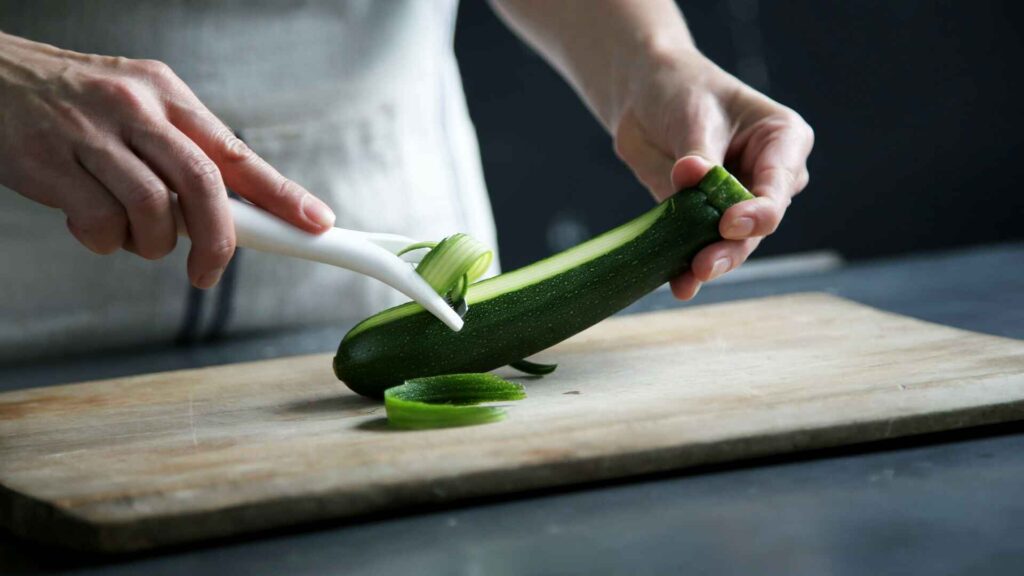
Can Chickens Eat Cucumber Peels?
Chickens absolutely enjoy eating cucumber peels, as they are rich in fiber and vitamin A, which support the digestive system and improve vision in dim light. Their stomach is built to digest fibrous plant food, and they can handle the dense fibers of cucumber skin with ease.
However, it’s essential to wash the cucumbers properly before feeding to avoid any potential contaminants. If the peels are too tough, you may notice them lying around in the yard. To make it more engaging, you can string the peels and let your birds pluck them as a fun activity.
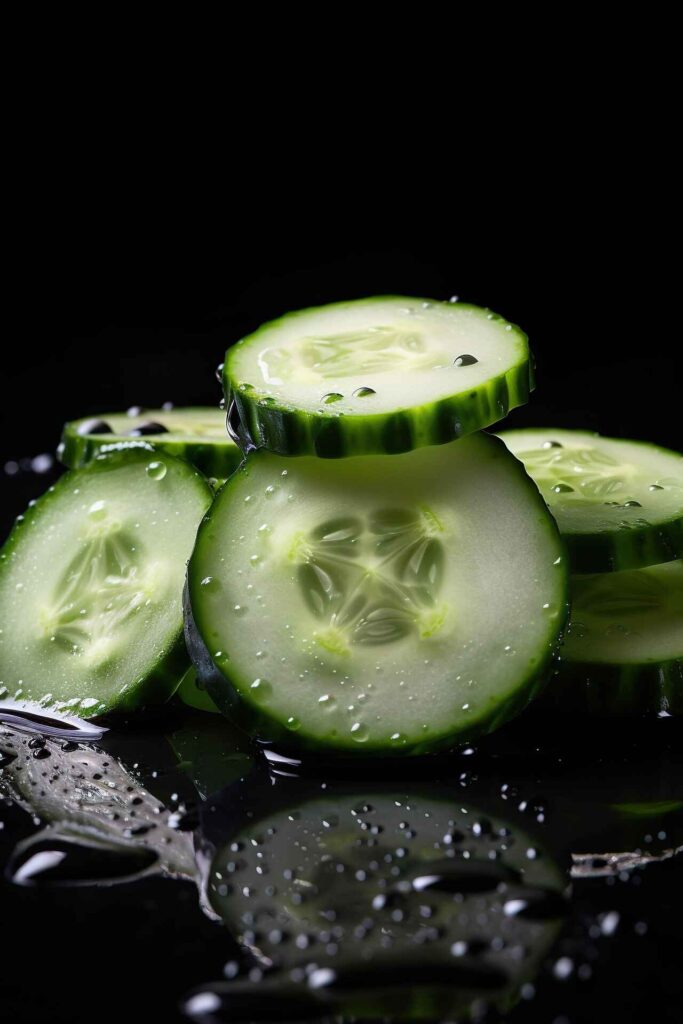
Can Chickens Eat Cucumber Seeds?
Cucumber seeds are perfectly safe and highly nutritious for chickens. They are the most nutrient-dense part of the cucumber, packed with beta-carotene, a powerful antioxidant that the chicken’s body converts into vitamin A, essential for eye health.
The amino acid cucurbitine in these seeds provides worm control benefits, thanks to its unique properties. Offering cucumber seeds as food to your birds ensures they receive an extra boost of nutrition while enjoying a tasty treat.
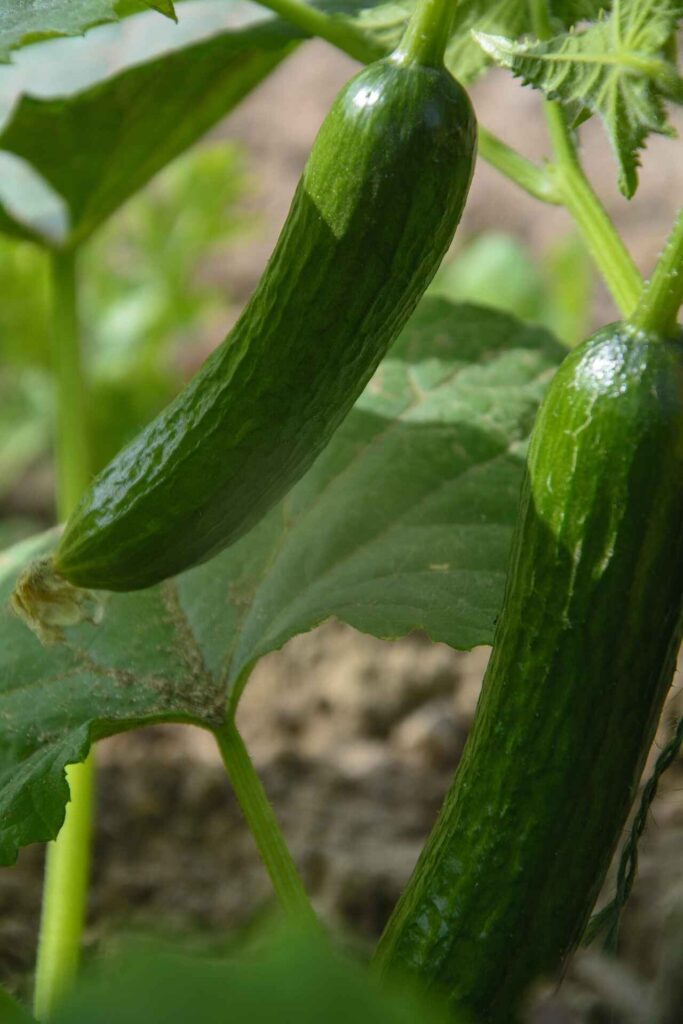
Can Chickens Eat Cucumber Leaves?
Chickens can safely eat cucumber leaves, but it’s important to wash them thoroughly to ensure they are chemical-free and free of pesticide residues.
While they are edible, cucumber vines and leaves can sometimes be hard for your birds to handle, which might leave the leaves lying on the ground. Additionally, it may take them longer to consume compared to other softer foods like peels.
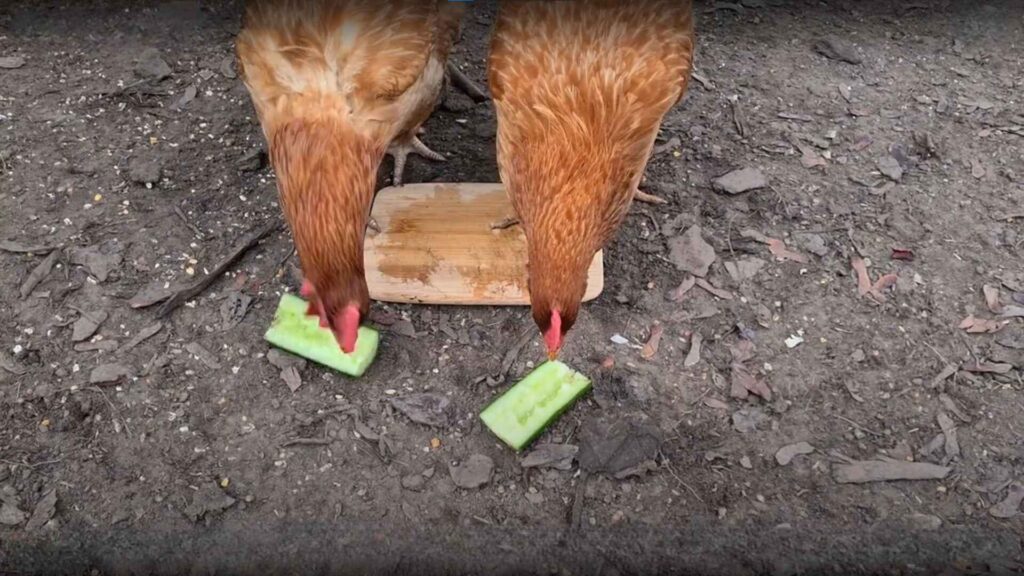
How Many Cucumbers Can Chickens Eat?
Chickens absolutely love cucumber, and while it’s a healthy food source, it should not replace their regular feed. Most of their daily diet must come from commercial feed, which provides the necessary nutrients to keep them alive and healthy. However, cucumbers can make for great treats and snacks, especially in occasional servings.
Feeding excessive amounts of watery foods like cucumbers can lead to a nutritional gap and disrupt their nutritional balance, possibly causing health problems like protein deficiency, malformed eggs, or even fatty liver syndrome.
It’s advised to limit treats to about 10% of their feed intake, though cucumbers are an exception due to their low-calorie content. Still, overfeeding is not recommended as it may result in obesity and reduced egg production.
Ensure you provide fresh cucumbers free from pesticides, as harmful residues can impact their health. You can also use leftover table scraps to keep your flock happy without risking overfeeding. By offering cucumbers in abundance occasionally, chickens can enjoy this refreshing treat while staying healthy.
When Not to Feed Cucumbers to Chickens?
While cucumbers are generally safe for chickens, there are a few things to avoid. Always inspect for yellow areas, wrinkled ends, or sunk-in spots as these can indicate spoilage. Mold and pesticides are especially dangerous and can harm the chicken’s digestive system or lead to severe infections.
Avoid giving them long blades of cucumber peels, as these can get stuck in their crops since chickens lack teeth to chew properly. You can serve cucumbers raw or cooked, but skip cucumber salads with dressings or foods chickens shouldn’t eat, like onions, which can upset their digestion.
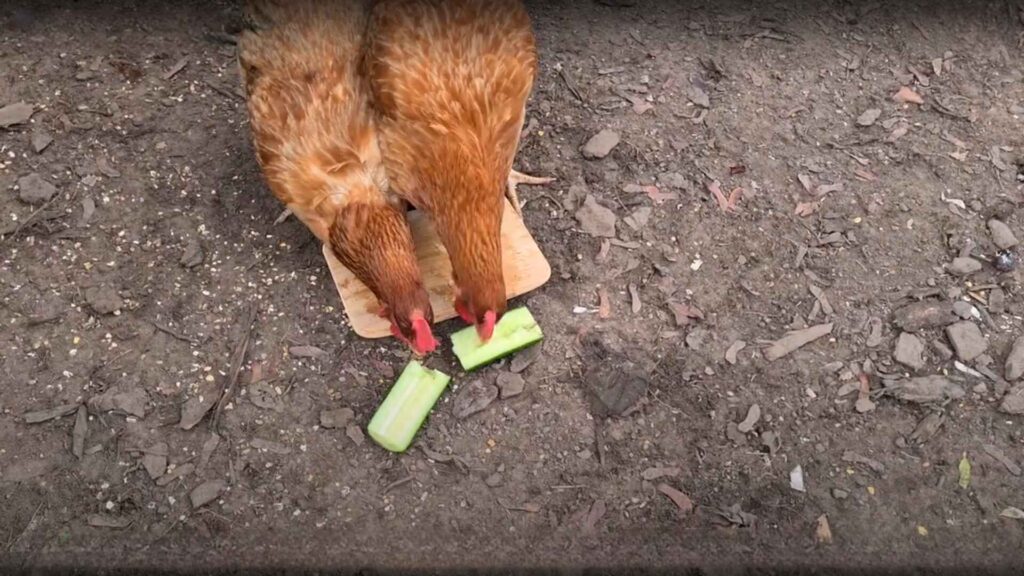
How to Feed Cucumbers to Chickens
Before feeding cucumbers to your flock, ensure they are free from harsh chemicals, like pesticides or fertilizers, by washing them thoroughly under cold running water. You can prepare them by cutting the cucumber in half lengthwise and placing it on the ground for your chickens to peck at the delicious flesh.
Another fun option is to string the cucumber, allowing the birds to peck at it while it hangs. To add variety, mix cucumber cubes with other vegetables to create a refreshing salad for your chickens.
Additionally, mashing the peel and seeds into a mixing dish can keep your flock happier and more satisfied. Always clean any leftovers from the coop to prevent attracting pests and ensure a healthier environment.
Conclusion
Cucumbers are highly nutritious treats that your chickens will enjoy as an occasional addition to their diet. Feeding them in moderation is key to keeping your birds healthy, and the same applies to other treats like carrots, pumpkin, kale, broccoli, lettuce, peaches, cherries, cabbage, and more. Including a mix of these options ensures variety and keeps your chickens happy while providing essential nutrients to support their overall well-being.
